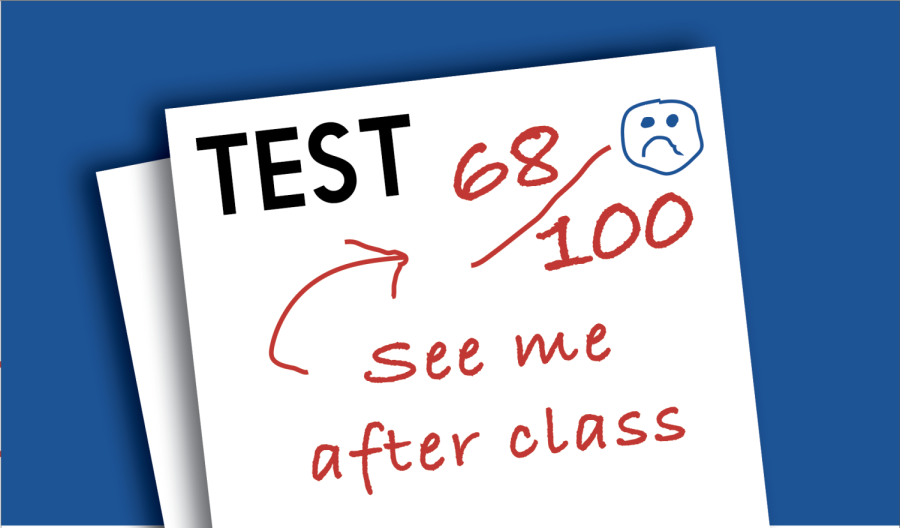Editorial: The grading dilemma
The ICCSD should stop moving towards a policy where grades are based only on assessments.
A grading policy based only on assessments would be harmful to students’ education.
Editorial Disclaimer: This is an editorial. While based on facts, its purpose is to share conclusions and opinions derived by the WSS Editorial Board.
In recent years, the ICCSD has moved closer to having grades based only on assessments. This year, departments determined their own assignment-assessment ratio as long as assessments were worth at least 85% of the grade. Individual teachers on the grading committee are experimenting with systems where 100 percent of the grade comes from assessments. The WSS Editorial Board believes that switching to a grading system where assignments do not count would harm the quality of education students receive.
Homework is an essential part of students’ learning in most classes. In courses with extensive curricula, there is too much material to cover entirely during class, requiring students to learn some material through homework. For other classes, homework is instead a chance for students to practice their skills and reflect on what they need to work on. A review of studies spanning from 1987 to 2003 conducted at Duke University found there was consistent evidence that homework improves test scores in middle school and high school.
While there is still homework in a system based on assessments, students are less likely to do it. In 2018, graduate student Cheryl Brenner conducted a year-long study of high school chemistry students where homework only counted in the grade of every other unit. She found the number of students that completed all homework increased by 13.69% when it was counted, and the number of students who did none of the homework decreased by 4.84%. The study also found that students scored better on unit assessments during graded units.
Another issue is students have fewer chances to demonstrate their learning. Every student may have an off day, whether due to external factors like issues in their home life or internal factors like test anxiety, which could lead to a student underperforming on an assessment. In these cases, the student’s grade would not reflect how much of the material they had mastered but instead how well they could demonstrate mastery on that particular day.
The move towards a grade based on only assignments is an attempt to make grading more equitable as some students have more time and resources to do homework than others. However, moving to a system based on 100% assessments isn’t an effective way to solve the issue of inequity. Whether or not homework is graded, it still exists, and students that have more time and resources to devote will be advantaged nonetheless. The only thing this policy changes is instead of the time and resources spent on homework being rewarded explicitly by being factored into your grade, it is rewarded implicitly. Those who have the time and resources to do homework will do more of it and score better on assessments.
The solution to this inequity is to try to limit the amount of homework given and allow flexibility in regard to when it is turned in. The current policy, where points cannot be taken off for late work until midterms, already makes progress towards these goals. Teachers should also think critically about the purpose of their homework assignments, and whether or not it is really essential for learning material. Any extra homework can be offered to students as extra practice and not put in the grade book, so grades are only on the line for homework that is essential for a student’s learning.
School policy should serve to enhance students’ learning, but switching to a grading system based only on assessments will only harm it. The inequities the district is looking to address through this change can be better solved through more mindful assigning of homework and flexible deadlines for students who need them.
Your donation will support the student journalists of West High School. Your contribution will allow us to purchase Scholarship Yearbooks, newsroom equipment and cover our annual website hosting costs.

(she/her) Sila Duran is a senior at West and it's her third year on staff. Sila is the Print Assistant Design Editor. You can typically find Sila at art...



